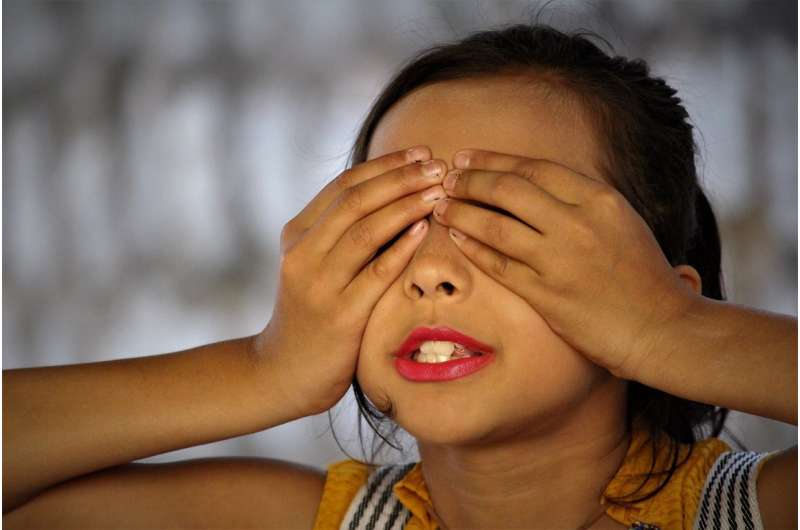October 17, 2018 report
Study shows how bias can influence people estimating the ages of other people

A trio of researchers from the University of New South Wales and Western Sydney University has discovered some of the factors involved when people make errors in estimating the ages of other people. In their paper published in the journal Royal Society Open Science, Colin Clifford, Tamara Watson and David White describe their study involving people estimating the ages of people shown in passport photos, and what they found.
The researchers note that reliably estimating age is an important social skill—we use such information to modify how we interact with others. We might be more respectful of someone older, for example, or more lenient with someone we perceive as younger. But just how accurate are we in guessing how old someone is? That was what Clifford, Watson and White sought to find out.
To learn more about how accurate people are in estimating age, the researchers obtained over 4000 passport photos of people between the ages of seven and 70 from the Australian Passport Office. They enlisted the assistance of 80 volunteers who were divided into two groups—those between the ages of 18 and 25 and those between the ages of 34 to 59. Each volunteer was asked to look at a given photo and then to estimate the person's age. Some of the photos were pixilated to block out certain characteristics.
The researchers found that overall, the volunteers were incorrect by an average of eight years in their estimates. They also found that people tended to judge young people as older and older people as younger. And interestingly, they found that the order that a person viewed the pictures could have an impact on age estimating, as well. After viewing a picture of an older person, for example, the volunteers were more likely to overestimate the age of the next person they viewed. They found this bias was even more pronounced if a volunteer was shown a pixilated image. The researchers also found that people tended to give their most accurate estimates when judging people near their own age. They conclude their analysis by suggesting that age estimation is more plastic than has been known, and that it appears to be based on both recent and normative exposure.
More information: Colin W. G. Clifford et al. Two sources of bias explain errors in facial age estimation, Royal Society Open Science (2018). DOI: 10.1098/rsos.180841
Abstract
Accurate age estimates underpin our everyday social interactions, the provision of age-restricted services and police investigations. Previous work suggests that these judgements are error-prone, but the processes giving rise to these errors are not understood. Here, we present the first systematic test of bias in age estimation using a large database of standardized passport images of heterogeneous ages (n = 3948). In three experiments, we tested a range of perceiver age groups (n = 84), and found average age estimation error to be approximately 8 years. We show that this error can be attributed to two separable sources of bias. First, and accounting for the vast majority of variance, our results show an assimilative serial dependency whereby estimates are systematically biased towards the age of the preceding face. Second, younger faces are generally perceived to be older than they are, and older faces to be younger. In combination, these biases account for around 95% of variance in age estimates. We conclude that perception of age is modulated by representations that encode both a viewer's recent and normative exposure to faces. The finding that age perception is subject to strong top-down influences based on our immediate experience has implications for our understanding of perceptual processes involved in face perception, and for improving accuracy of age estimation in important real-world tasks.
© 2018 Medical Xpress



















